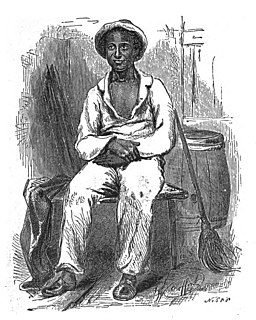A Quote by Hal Holbrook
Man looks in the abyss, there's nothing staring back at him. At that moment, man finds his character. And that is what keeps him out of the abyss.
Related Quotes
Let a man learn to look for the permanent in the mutable and fleeting; let him learn to bear the disappearance of things he was wont to reverence; without losing his reverence; let him learn that he is here, not to work, but to be worked upon; and that, though abyss open under abyss, and opinion displace opinion, all are at last contained in the Eternal Cause.
There comes a time when a man finds himself in front of a dark uncrossable abyss, which he himself has spent years digging. He cannot go forward, and has no way back. Words have failed, tears won't help, and who would he call out to? He can't even remember his own name. Then the man sees that on this god's green earth there is but one true suffering: the torment of guilty conscience.
I'll not meddle with it; it is a dangerous thing; it makes a man a coward; a man cannot steal, but it accuseth him; a man cannot swear, but it checks him; a man cannot lie with his neighbor's wife, but it detects him. 'Tis a blushing, shame -faced spirit, that mutinies in a man's bosom ; it fills one full of obstacles; it made me once restore a purse of gold that by chance I found; it beggars any man that keeps it; it is turned out of all towns and cities for a dangerous thing; and every man that means to live well endeavors to trust to himself and live without it.
The Prophet, peace and blessings be upon him, said: "My Companions are as stars. Whomsoever of them you follow, you will be rightly guided." When a man looks at a star, and finds his way by it, the star does not speak any word to that man. Yet, by merely looking at the star, the man knows the road from roadlessness and reaches his goal.
No man could bring himself to reveal his true character, and, above all, his true limitations as a citizen and a Christian, his true meannesses, his true imbecilities, to his friends, or even to his wife. Honest autobiography is therefore a contradiction in terms: the moment a man considers himself, even in petto, he tries to gild and fresco himself. Thus a man's wife, however realistic her view of him, always flatters him in the end, for the worst she sees in him is appreciably better, by the time she sees it, than what is actually there.
At such times, the heart of man turns instictively towards his Maker. In prosperity, and whenever there is nothing to injure or make him afraid, he remembers Him not, and is ready to defy Him; but place him in the midst of dangers, cut him off from human aid, let the grave open before him, then it is, in the time of his tribulation, that the scoffer and unbelieving man turns to God for help, feeling there is no other hope, or refuge, or safety, save in his protecting arm.
Misanthropy ariseth from a man trusting another without having sufficient knowledge of his character, and, thinking him to be truthful, sincere, and honourable, finds a little afterwards that he is wicked, faithless, and then he meets with another of the same character. When a man experiences this often, and more particularly from those whom he considered his most dear and best friends, at last, having frequently made a slip, he hates the whole world, and thinks that there is nothing sound at all in any of them.
I love The Miz. His approach to his job is second to none; it's extremely important to him that he prepares on a daily basis. I travel with him and from the moment he gets up to the moment he goes to bed it's all WWE, all sports entertainment. He keeps his body in shape and he is a true champion in the ring and out. He's a great representative of the company and I'm learning a lot from him, not only on TV but outside as well.
Deconstruction seems to offer a way out of the closure of knowledge. By inaugurating the open-ended indefiniteness of textuality-by thus 'placing in the abyss' (mettre en abime), as the French expression would literally have it-it shows us the lure of the abyss as freedom. The fall into the abyss of deconstruction inspires us with as much pleasure as fear. We are intoxicated with the prospect of never hitting bottom



































